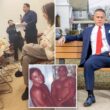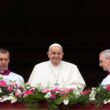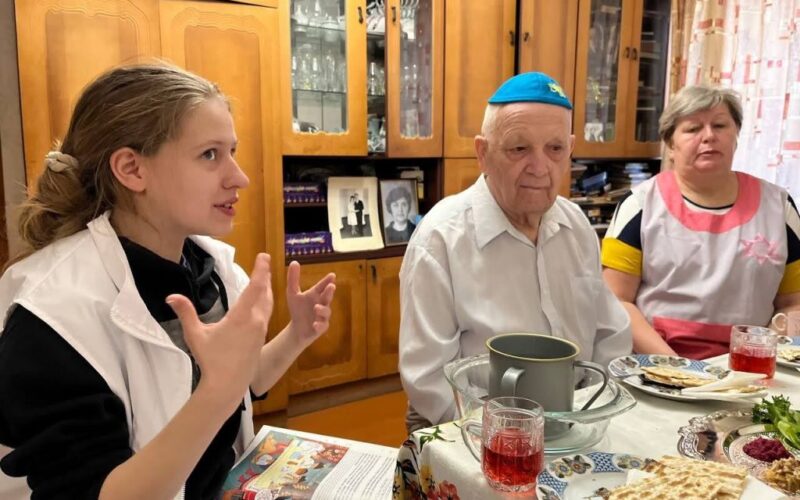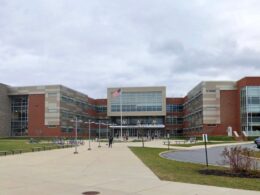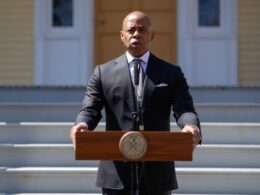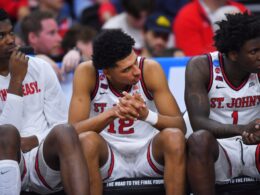When you’re 17 and living in a conflict zone, hope seems like the last thing you can muster.
For three-plus years, I’ve experienced endless sirens and blackouts in Poltava, Ukraine. I haven’t been to school full time. Friends and neighbors have fled. In the last year, more than 130 people were killed and the buzzing of drones and bombings are our new normal.
I worry constantly — will there be a ceasefire? Will my parents lose their jobs? Will my luck end during the next missile strike?
Despite this, I’m very optimistic. It’s rooted in a special resilience I’ve learned from my local Jewish community and in the story of Passover, which ends today.
The holiday is more than the festival recalling the Israelites’ journey from slavery to freedom. For me, it’s a powerful reminder that true courage is knowing who you are and true freedom is helping people at their darkest hour.
I always knew I had Jewish roots, but the Holocaust and Soviet antisemitism — when Jews were shut out of jobs and universities, and not allowed to practice their faith — made my grandmothers ashamed to talk about their backgrounds or connect with other Jews. Even my father, who dabbled with the Jewish community in his youth, didn’t stay involved.
So I knew I was being brave when I went to Hesed, the local Jewish social service and community center founded and supported by the American Jewish Joint Distribution Committee (JDC) in Poltava. The Hesed provides life-saving social support to our community’s neediest members as well as cultural, educational, and Jewish programming.
There are volunteer opportunities, a teen club, and during the current conflict, the Hesed has become a hub for delivering tons of humanitarian aid, trauma care, and kinship. This is made possible by JDC and their partners at the Jewish Federations, Claims Conference, and IFCJ.
At the teen club I learned about tzedakah, the Jewish obligation to care for the needy, and the timeless commitment of Jews to care for one another. I developed a deep sense of responsibility for my community. If each of us could do one small good deed daily, the world would be improved. I live by this principle, joining Jewish volunteers in their efforts.
This year for Passover, we’ve been visiting homebound elderly, leading Seders and delivered matzah and food packages. In the former Soviet Union, there are tens of thousands of needy elderly Jews, many isolated with no family. They rely on Hesed and volunteers like us for support. For those in Ukraine, conditions made worse by crippling fear, widespread destruction, and spiking prices.
That’s why we carefully prepared each Seder to bring joy and hope. The most meaningful moment was when we told the story of the exodus from Egypt. Jews retell this tale from generation to generation, each adding our own struggles and how we overcame them.
We found particular inspiration from the seniors who’ve endured so much, but remain strong and positive. We’ve now added their stories to the enduring narrative of our people’s miraculous survival and our pride in openly expressing our Jewish identity.
This message is especially important to Olga and Lyudmila, two elderly ladies I regularly volunteer with. I see them at least once a week. We call each other to check in. I bring them food, arrange home repairs through Hesed, and help them pay bills online.
During my time with them, they share their family histories, Jewish traditions, and stories about their careers. They call me their “Jewish granddaughter” — we’re connected as one big family.
Straggling at the end of the Israelite caravan escaping Egypt were the sick and elderly, helpless women and children. They were in the most danger on the journey and when they reached the other side of the Red Sea, they were the ones attacked by the Amalekites.
When I hear this, I think about Olga and Lyudmila and the other disadvantaged people enduring so much hardship. I say to myself: if I don’t step up to help them, who will? Sure, I might have had a tough week, but I always find a few hours for them.
They remind me of who I am and what I want the world to be. Just as my ancient and modern ancestors found freedom from oppression, so can each of us be liberated from today’s challenges by crafting a future built on deeds of lovingkindness.
Zimina is a student and a volunteer in her local Jewish community in Poltava, Ukraine.

